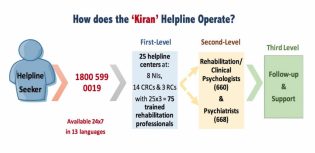Solving puzzles at old age might not boost declining mental health: Study indianexpress.com
When it comes to keeping the brain sharp in old age, we have often heard that it all depends on ‘use it or lose it’ formula. But a recent research shows that you do not have to engage in solving puzzles or mental aptitude exercises to keep your brain young and kicking in old age.
Advertising
“Loss of mental competence can cause substantial anticipatory concern among older adults (that is, age> 65 years) by suggesting that such loss heralds the onset of progressive cognitive decline and dementia. Public health guidance on successful ageing highlights the importance of social and physical activity and engagement”, the study states.
The Scottish study took help from a sample of 498 volunteers who had taken part in the Scottish Mental Health Survey of 1947, from one birth year (1936). This study published in the BMJ was undertaken by Roger Staff at Aberdeen Royal Infirmary and the University of Aberdeen.
Typical intellectual engagement was measured by a questionnaire, and repeated cognitive measurements of information processing speed and verbal memory were obtained over a 15 year period (recording more than 1200 longitudinal data points for each cognitive test).
It found that engaging in problem-solving did not protect an individual from decline. However, engaging in intellectually stimulating activities on a regular basis was said to boost mental ability in old age. “These results show that self-reported engagement is not associated with the trajectory of cognitive decline in late life, but is associated with the acquisition of ability during the life course. Overall, findings suggest that high performing adults engage and those that engage more being protected from relative decline.”
“Activity engagement is so often argued to be an important dimension of successful ageing (and more specifically, the preservation of intellectual function in old age that the “use it or lose it” conjecture already appears to be an established fact of cognitive ageing. We aimed to re-examine this claim by analysing the effects of activity engagement on cognitive test performance and the trajectory of that performance in late adulthood. In addition, we aimed to test the robustness of observations by controlling for life course cognition and education”, the study concluded.









Leave Your Comment